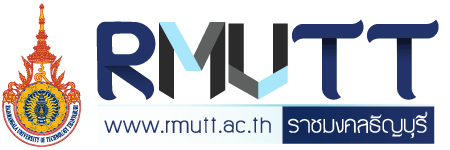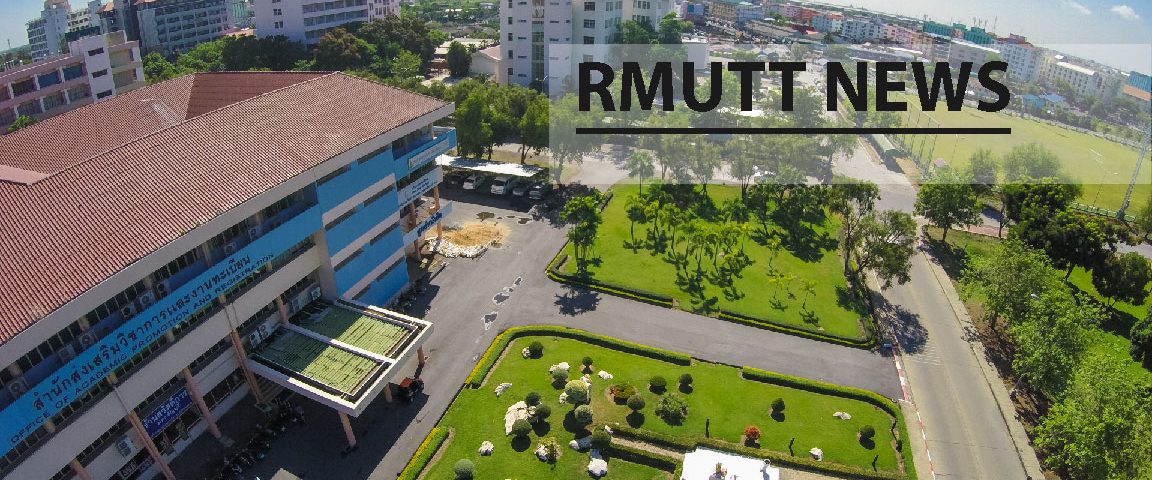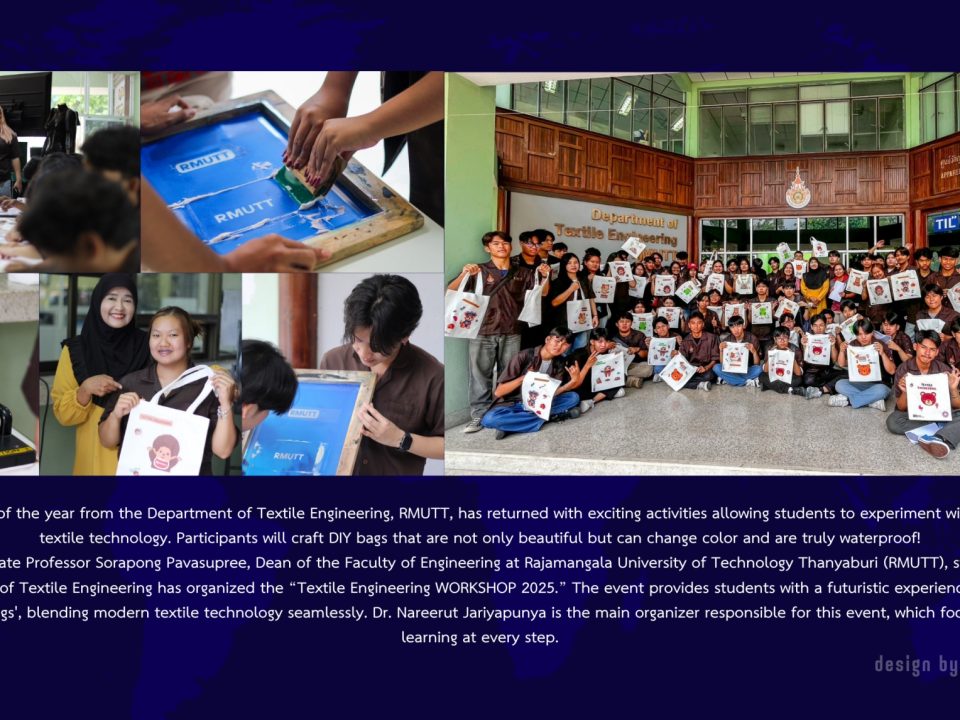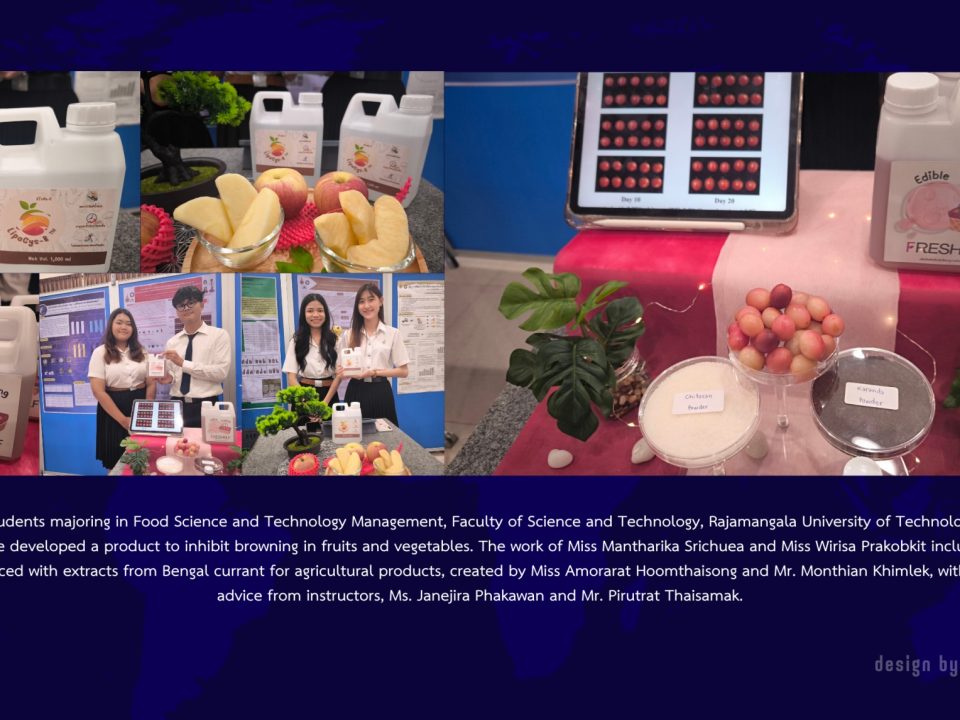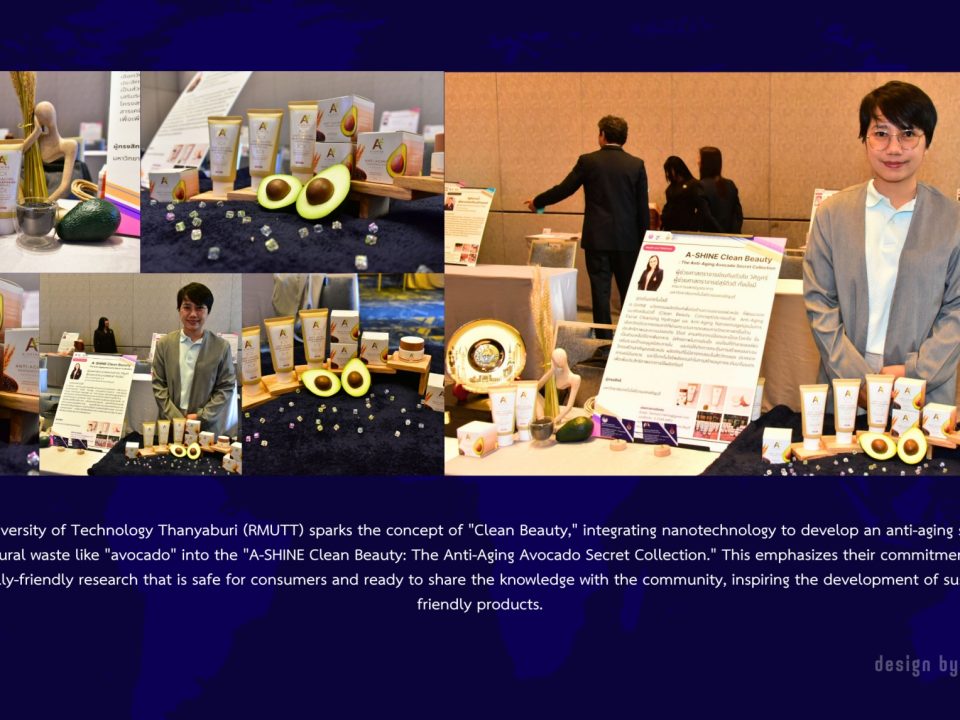
4G Network Prototype: A Cost-effective Way to Welcome the Technology
23/07/2013
Design for the Future: Terracotta Tiles Help Reduce Energy Consumption
30/07/2013Faculty of Mass Communication Technology’s Dean revealed the faculty’s future direction and industry trends at a recent academic workshop for department lecturers and faculty members.
“In the last decade, the Faculty has recruited more lecturers and faculty members, in order to support the Faculty’s rapid growth in its academic program offerings as well as society and the world in general,” said the Faculty’s Dean, Dr. Wichai Payakkaso. “This workshop provides professional development for our faculty members, by offering a new paradigm for thinking and applying practical knowledge in classrooms. The aim is to enable them to add value to their class curricula, by integrating technology and advancing their teaching perspectives from pure knowledge to experts’ know-hows,” he added.
Topics covered in the presentation part of the workshop spanned a wide range of industry fields and were presented by leading experts in each area, including “Integrating technology and Innovations in Mass Communication Production”, “Digital Technology and New Media”, “Innovations in Digital Content Production”, and “Development of Green Packaging for Natural Conservation”. The practical part of the workshop offered opportunities for learning about content production, broadcasting, and network management.
Meanwhile, the Faculty plans to offer a new program in Digital Communication Technology. This is a move toward welcoming the Digital Age for broadcast television, following analog shutdown in 2008. Since then, the television broadcasting technology entered the Digital Age, with high definition television and digital high definition television (DHDTV).
The university has set up a U22 television channel for academic and vocational education. “It is our Faculty’s responsibility to encourage a diverse production of program content to supply the increasing number of television channels in the near future. This means that we need more skilled technicians as well as people to work in this field,” said Dr. Wichai.
“As Thailand moves toward the Digital Age, we as the Faculty need to adjust our perspective, from imparting knowledge to supporting learning by providing appropriate learning environment and tools. This also means that our lecturers must encourage creativity and analytical thinking, in addition to integrating the use of computer and digital technologies in the classroom. We intend to supply the industry with top quality graduates, in order to move Thailand forward in its transition toward the Digital Age,” he added.
The Faculty of Mass Communication Technology has a mission to provide education and produce quality graduates in the fields of photography and cinematography technology, multimedia technology, printing technology, advertising and public relations technology, and radio and television broadcast technology. In addition, the Faculty has fulfilled its responsibilities of a higher education institution, including research, preservation of Thai culture and religion, natural conservation, and public services.
